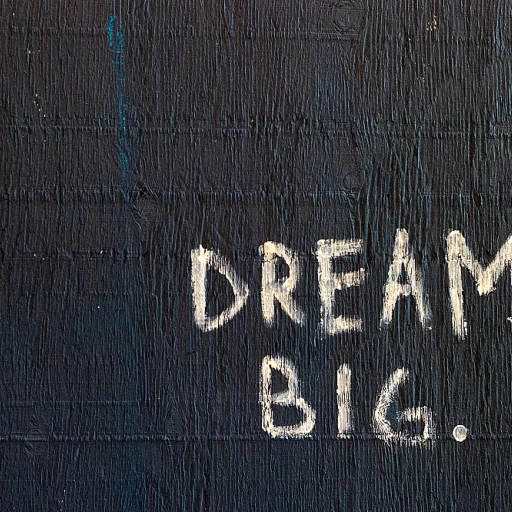
Understanding Diversity in the Workplace
Recognizing the Importance of Diversity
In today's rapidly evolving work environment, understanding diversity is more crucial than ever. Diversity in the workplace goes beyond mere representation; it encompasses the inclusion of different perspectives, backgrounds, and experiences. This diversity is not just about race or gender but also includes age, sexual orientation, disability, and more. A diverse workforce can lead to more innovative solutions and a more inclusive environment, benefiting both the company and its employees.
Why Diversity Matters in the Workplace
Having a diverse team can significantly enhance decision-making processes. When team members come from varied backgrounds, they bring unique viewpoints that can lead to more comprehensive and creative solutions. This diversity of thought is invaluable in a competitive market where innovation is key. Moreover, a diverse environment fosters a sense of belonging among employees, which can improve job satisfaction and retention rates.
Linking Diversity to Work-Life Balance
Diversity and work-life balance are interconnected. A workplace that values diversity is more likely to implement policies that support work-life balance, recognizing the varied needs of its employees. For instance, flexible working hours or remote work options can accommodate different lifestyles and responsibilities, promoting a healthier work-life balance. This approach not only benefits employees but also enhances overall productivity and morale.
For more insights on how diversity can enhance work-life balance, consider exploring expressing gratitude on Employee Appreciation Day as a way to foster an inclusive and supportive work environment.
The Role of Diversity Interview Questions
Understanding the Significance of DEI Questions in Interviews
In today's competitive job market, interview questions centered around diversity, equity, and inclusion (DEI) play a critical role in shaping a balanced workplace. These questions provide hiring managers a unique opportunity to gauge how potential candidates will contribute to a diverse and inclusive work environment. Diversity interview questions are designed to assess a candidate's understanding and commitment to DEI values, which are vital for fostering an inclusive workplace. By asking these questions, companies can evaluate how well a candidate aligns with the organization's inclusivity goals and how they might enhance a diverse environment. Some example questions might explore how candidates have previously handled situations involving diversity or how they plan to contribute to creating an inclusive team. This approach ensures that the company hires individuals who not only possess the necessary qualifications but also embody the principles of diversity and inclusion. It's important to frame these questions in a way that demands thoughtful and specific answers. For instance, hiring managers might ask, "Can you provide an example of how you've promoted equity and inclusion in your previous job?" This type of interview question encourages candidates to share real experiences and demonstrate their commitment to fostering a diverse work environment. Moreover, integrating DEI questions into the hiring process can lead to the creation of a more equitable, inclusive, and diverse workforce, which ultimately benefits the organization and its overall work-life balance. By prioritizing diversity interview questions, companies can ensure alignment between their recruiting strategies and their values regarding diversity and inclusion. For further insights into the impact of diversity on work-life balance, you might explore this comprehensive resource. This can provide a broader understanding of how a well-implemented DEI strategy can enhance the workplace for everyone involved.Crafting Effective Diversity Interview Questions
Strategies for Crafting Thoughtful Diversity Questions
Crafting effective diversity interview questions is a critical step in fostering a work environment that values diversity and inclusion. Well-designed questions not only help identify candidates who align with a company's values but also bring diverse perspectives to the table. When designing these questions, consider the following elements:- Focus on Values and Inclusion: Aim to understand how candidates have engaged with and supported diversity in past work environments. Questions should encourage candidates to demonstrate their experience and commitment to equity and inclusion in their previous roles.
- Open-Ended Questions: These allow candidates to provide detailed responses that give insight into their understanding and commitment to diversity, equity, and inclusion. For example, ask how they have contributed to an inclusive workplace or how they have handled a diverse team in the past.
- Avoid Clichés: Questions should be thoughtful and specific rather than generic to elicit genuine responses. Vague questions about diversity tend to give candidates an opportunity to provide rehearsed answers without revealing their true character or values.
- Assess Problem-Solving and Decision-Making: Incorporate scenarios that require candidates to demonstrate their problem-solving skills in situations related to diversity challenges. This can help determine their ability to navigate complex diversity-related issues.
- Align with Company Culture: Ensure questions reflect the company's culture and align with its goals for building a diverse and balanced workplace. This will help attract candidates who not only understand but also embody the company's diversity and inclusion goals.
Challenges in Implementing Diversity Interview Questions
Overcoming Challenges in Enforcing Diversity Interview Questions
Implementing diversity interview questions in the hiring process brings challenges that organizations must address for effective results. A primary issue is ensuring that questions genuinely promote equity and inclusion without being superficial or tokenistic. To overcome this, companies should involve a diverse team in the development of these questions to reflect an inclusive environment. Another challenge is consistency in the application of diversity interview questions across different hiring managers. To achieve this, organizations should provide training sessions that emphasize the values of equity, diversity, and inclusion (DEI). This ensures that all staff involved in the hiring process understand the importance and complexity of these principles. Furthermore, evaluating the impact of diversity questions is crucial. Organizations must regularly revisit their interview questions, analyzing candidate responses to ensure they align with the desired work environment. This iterative process allows companies to adjust their questions to better suit their evolving diverse workforce. Lastly, some candidates may find diversity questions intrusive or irrelevant. It's essential to frame these questions in a way that clearly communicates their purpose—for example, highlighting how a candidate’s unique background can contribute to the company’s goals. By focusing on crafting thoughtful questions and responses, organizations can foster a truly inclusive workplace.Impact of Diversity on Work-Life Balance
Diversity's Influence on Work-Life Harmony
In today's dynamic work environment, understanding the impact of diversity on work-life balance is crucial. The integration of diverse values and practices in the workplace goes beyond fostering an inclusive atmosphere; it directly affects the equilibrium between professional and personal life. A Diverse Workforce Fosters Flexibility When a company embraces a diverse workforce, it inherently promotes flexibility. This is because diverse team members bring varied perspectives and working styles, which encourage adaptive work practices. As companies begin to value diversity inclusion, they understand the importance of accommodating different backgrounds and needs. This leads to more equitable work policies that allow employees to achieve their desired work-life balance. Enhancement of Decision Making A diverse environment cultivates better decision making, as it combines a multitude of insights and experiences. By tapping into the equity inclusion principles, hiring managers can ensure a wide range of talents are considered during the hiring process, leading to a more comprehensive approach to problem-solving. A workplace enriched with diverse viewpoints can often lead to more balanced workloads and foster a culture that honors personal time as much as professional commitments. Examples of Positive Impact Consider a diverse inclusive company that values the input of employees during planning phases. By asking inclusive interview questions, employers can understand the preferences and needs of potential candidates. As a result, employees feel seen and heard, often translating into reduced absenteeism and higher rates of job satisfaction. For example, ask questions about how a candidate prioritizes work responsibilities alongside personal commitments. Their answer can reveal alignment with the company’s work-life values. Encouraging a Balanced Work Environment Inclusion workplace strategies are pivotal in promoting a balanced work environment. By integrating DEI interview components, hiring processes can actively screen for candidates who already value equity and inclusion in their work. By making diversity a core value, companies create an atmosphere that supports both individual and team growth—factors essential for maintaining a fulfilling work-life balance. While diversity itself does not automatically lead to work-life balance, when paired effectively with inclusive practices and equitable policies, it can significantly enhance the quality of life for employees in a workplace. Aligning diversity questions during interviews with the company's commitment to balance can set a strong foundation for an environment where everyone thrives.Best Practices for Promoting Diversity and Balance
Building an Inclusive Environment
Creating a diverse and inclusive workplace is essential for promoting work-life balance. Companies should focus on fostering an environment where all team members feel valued and respected. This involves implementing policies that support diversity, equity, and inclusion (DEI) and ensuring that these values are reflected in the company culture.
Effective Hiring Practices
Hiring managers play a crucial role in promoting diversity and balance. By asking thoughtful diversity interview questions, they can identify candidates who align with the company's DEI values. This not only helps in building a diverse workforce but also ensures that new hires contribute positively to the work environment.
Continuous Education and Training
Providing ongoing education and training on diversity and inclusion is vital. This helps team members understand the importance of these values and how they contribute to a balanced workplace. Regular workshops and seminars can keep the conversation going and ensure that everyone is on the same page.
Encouraging Open Communication
Open communication is key to maintaining a diverse and inclusive work environment. Encouraging team members to share their thoughts and experiences can lead to better decision-making and a more cohesive team. This approach also allows for addressing any issues related to diversity and inclusion promptly.
Monitoring and Evaluation
Finally, companies should regularly monitor and evaluate their diversity and inclusion efforts. This involves assessing the effectiveness of interview questions, hiring practices, and overall workplace culture. By doing so, organizations can make necessary adjustments to ensure they are promoting a truly diverse and balanced work environment.













